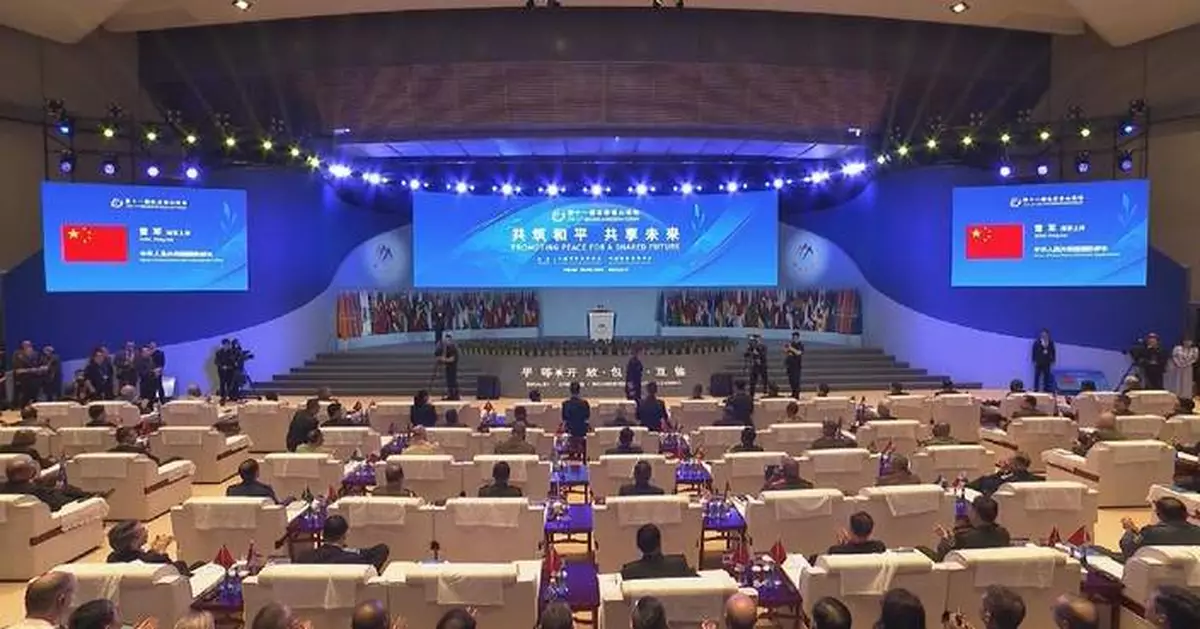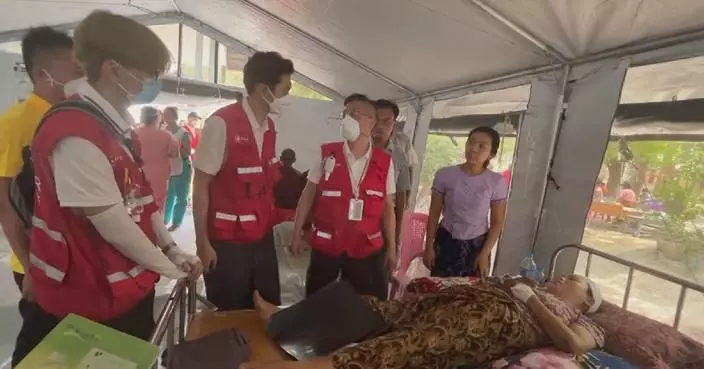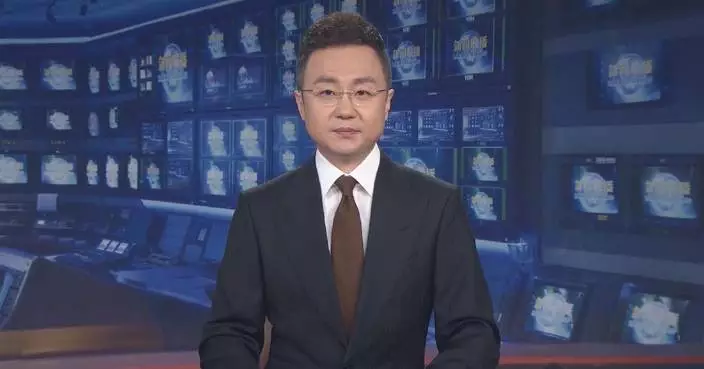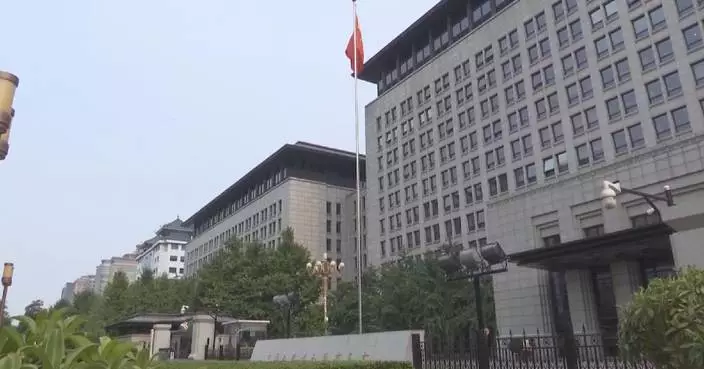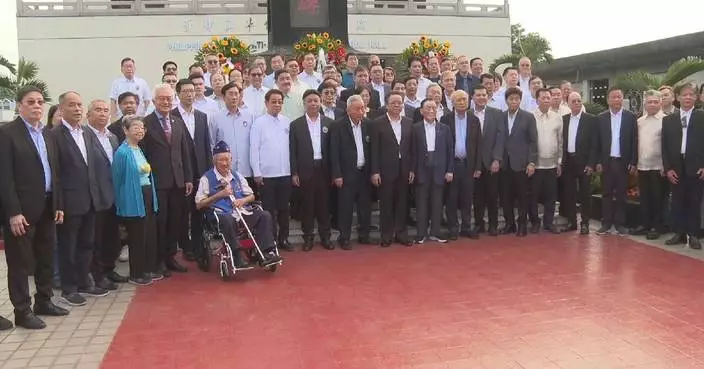The 11th Beijing Xiangshan Forum opened in Beijing on Friday morning with hotspots around the world and security cooperation taking the center stage.
The opening ceremony was attended by more than 600 official representatives from over 100 countries and international organizations, including nearly 300 heads of official delegations and officials from various countries. The forum is held with the theme of "Promoting Peace for a shared future".
China's Defense Minister Dong Jun attended the opening ceremony and delivered a keynote speech. He first read out a congratulatory letter from President Xi Jinping to the forum. Then, he mentioned in his speech the current hot issues including the Ukrainian crisis and the ongoing Palestine-Israel conflict.
Dong said "there is no winner in a war and a conflict, and there is no way out if we just confront each other." He also stressed that promoting peace talks is the only way out, and the fundamental way out.
Two plenary sessions were held after the opening ceremony. At the first session, participants exchanged views on "security cooperation and prosperity and stability in the Asia-Pacific region", and official representatives from Vietnam, Singapore, Pakistan, Fiji, Russia and Malaysia spoke at the meeting.
The theme of the second plenary session was "multipolarization and the direction of international order", and defense ministers or military generals from six countries including Cambodia, Tanzania, Cameroon and Iran delivered speeches.
The topics all focus on security hotspots. Participants include not only developing and developed countries, but also representatives, experts and scholars from the closely-watched countries such as the United States, Russia, and Ukraine.
In interviews, many participants said that the Beijing Xiangshan Forum is committed to promoting dialog, exchanges and cooperation among defense agencies, militaries and international organizations of various countries, and is playing an active role in promoting regional security and stability and maintaining world peace and development.
The ongoing Beijing Xiangshan Forum, which runs until Saturday, will also hold eight parallel group sessions, focusing on themes such as the correct way for China and the United States to get along, European security trends and Middle East peace vision. This year, a new session on outer space security has been set up for participants to jointly discuss issues on outer space security governance.
Initiated in 2006, the Beijing Xiangshan Forum is a high-level security and defense forum in the Asia-Pacific with significant international influence.
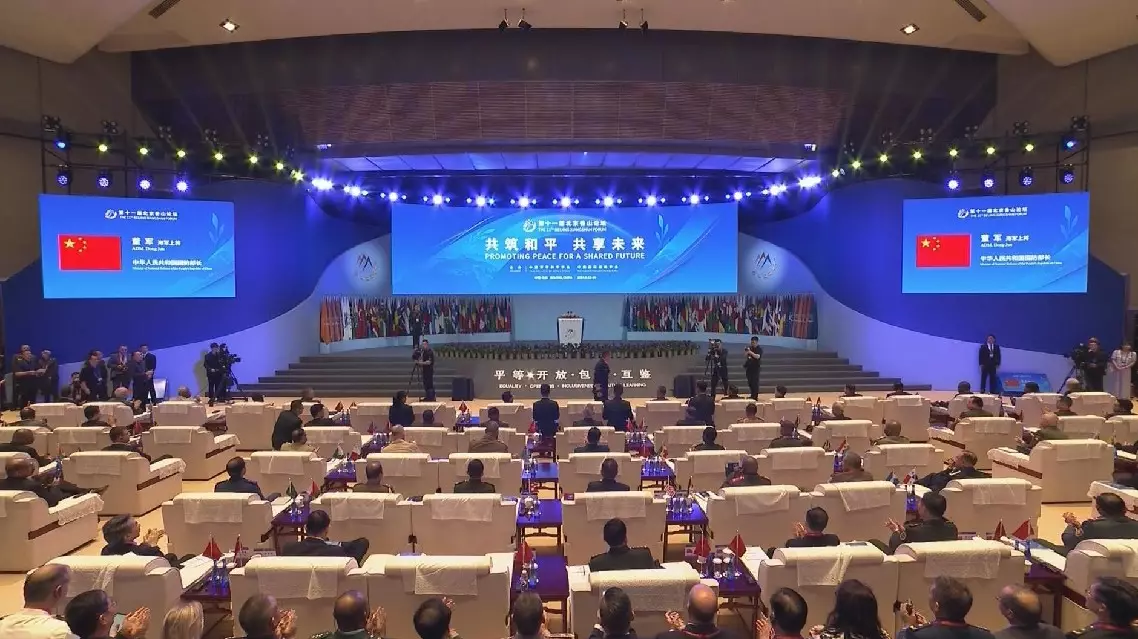
11th Beijing Xiangshan Forum opens with focus on hotspots, security cooperation
As the Qingming Festival approaches this Friday, various traditional folk activities have been held across China, celebrating the rich cultural heritage of the occasion.
With a 2,500-year history, Qingming Festival, or the Festival of Pure Brightness, observed in early April, uniquely combines ancestral worship with the celebration of spring. Falling on the 15th day after the spring equinox, this ritual-rich observance reflects China's enduring values of ancestral veneration and inspires deep introspection about what gives life meaning.
In Sijia Village, Huayin City, northwest China’s Shaanxi Province, a unique swing festival is held to mark the occasion. Eighteen different types of traditional swings, such as the spinning wheel swing, the Bagua swing reminiscent of a rotating carousel, and the balance swing designed for two people, have attracted many visitors.
Historically, Sijia Village served as a military post guarding the strategic Tongguan pass, a former mountain pass and fortress located south of the confluence of the Wei and Yellow Rivers. The swing tradition in the village has its origins in military training exercises like climbing and river crossing. The local swing culture further developed as regional trade flourished, eventually evolving into the "swing festival" that continues today.
"It's very exciting and tests your skill, endurance, and most importantly, your arm strength. You need to maintain balance," said Qu Xiangyang, a visitor.
In Rudong County, Nantong City, east China's Jiangsu Province, another traditional Qingming activity takes place - kite flying.
Flying kites as a way of making wishes is an age-old Qingming custom in this region. As a result, the Qingming Festival in Nantong is also known as the "Kite Festival."
The local Banyao whistling kite making skills is listed as one of the first national intangible cultural heritage items.
According to a folk culture expert, people traditionally write the names of diseases or misfortunes on paper, attach it to a kite, and release it into the sky. This practice is believed to drive away illness and disaster, while also serving as a way to make wishes.
In south China's Guangdong Province, a large tug-of-war competition is underway in Maoming City. Teams from different towns and streets are competing, attracting many locals to cheer on their teams.
Tug-of-war, which originated during the late Spring and Autumn period (770 BC - 476 BC), became part of Qingming customs during the Tang Dynasty (618-907). Emperor Xuanzong of the Tang Dynasty once organized large-scale tug-of-war competitions for the festival.
"Tug-of-war became very popular in the Tang Dynasty, even emerging as the national sport. It originated in the Jingchu region and later spread across the country. In ancient Lingnan (Southern China), tug-of-war games were a common tradition. Through these events, people seek to pray for peace, prosperity, and abundant harvests," said Yao Guojun, vice dean of the College of Arts and Law, Guangdong University of Petrochemical Technology.
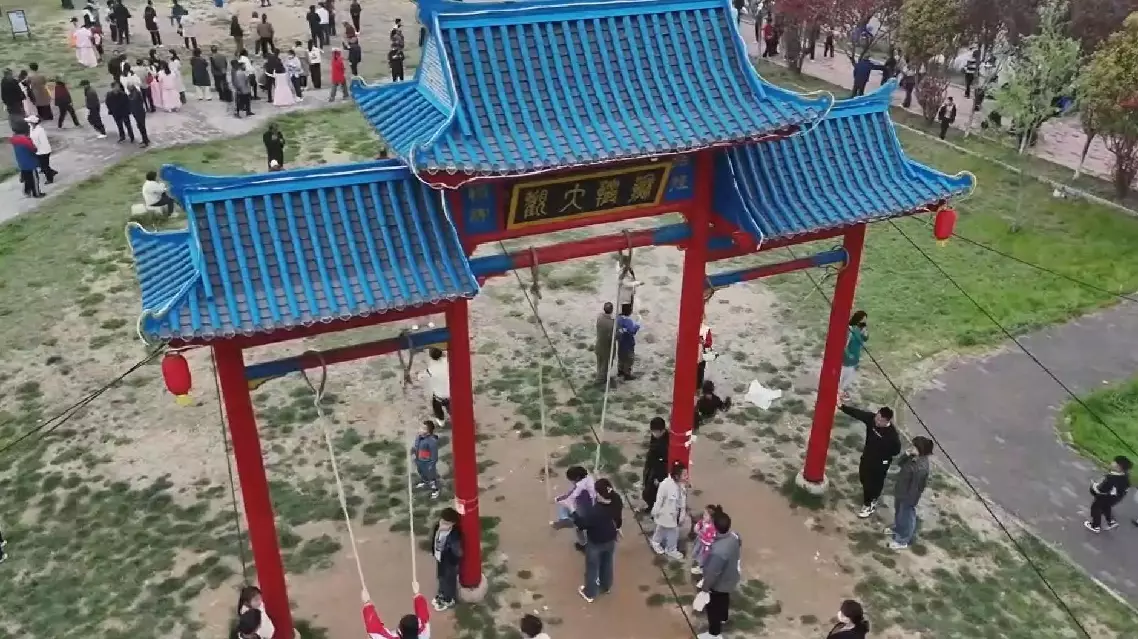
Traditional folk activities held for Qingming Festival



